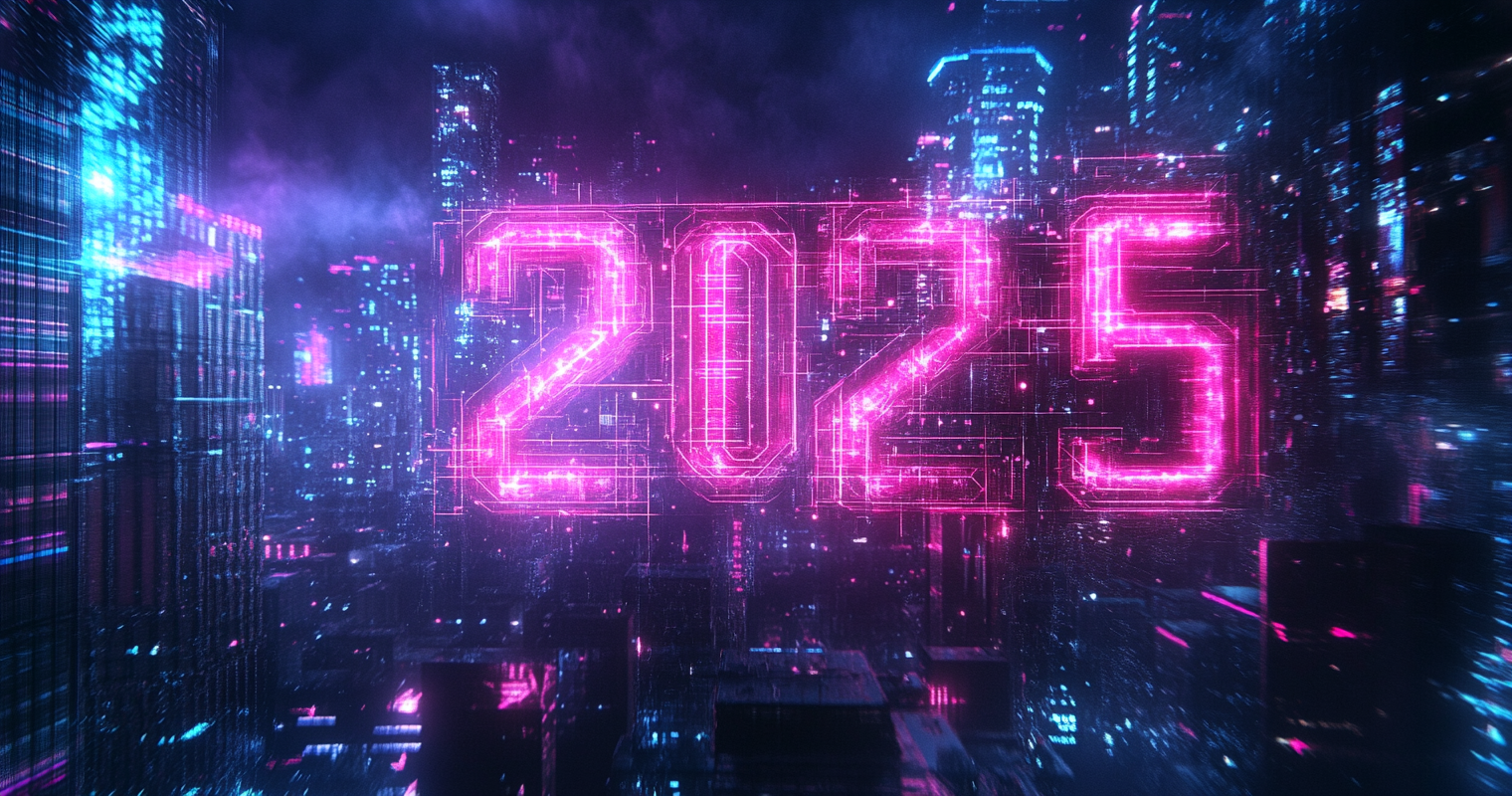December 17, 2024
1. Models will improve—but how much? There is serious concern that the rate of progress for artificial intelligence is actually slowing down—perhaps there are diminishing returns on large language model investment. Will we achieve AGI—some artificial superintelligence—in 2025? Likely not. If anything, the models could start to underwhelm. If that happens, maybe the hype cycle for AI will begin to twilight. It’ll be up to the industry’s leaders to prove to the public and to investors that the future is bright—even if it requires some patience before the much-hyped awesome future of AI reveals itself.
2. Meet your new assistant: In 2025, you will encounter AI that looks slightly different. Corporate leaders are focusing on multimodality, the idea that chatbots should be able to use text, images, videos, and more all in one interface. But AI executives are already talking about the next great thing: AI agents. These models, in theory, will be able to perform tasks for you — like fill in time cards or order your groceries — not simply chat with you and answer requests. But do we trust AI programs to actually work autonomously? Or should they stay completely responsive to our every line to text?
3. Labor will fight back: Organized labor has already pushed back against the advent of artificial intelligence, especially in Hollywood and the video game industry. Expect that creative workers from all walks of life may get more frustrated with AI companies allegedly ripping off their work and not compensating them for it. That could mean more lawsuits, but also more strikes. Can labor and tech find a happy compromise? It could prove crucial.
4. Trump will refocus regulation: President-elect Donald Trump will take a hands-off approach to regulating artificial intelligence — unless AI companies cross him. Right now, tech leaders from Meta, Amazon, OpenAI, and even Perplexity are donating to Trump’s inaugural fund in order to get on his right side. But we’ll also see the influence of AI executive Elon Musk on the administration: Will he enact his own revenge, or use his position in charge of government efficiency to cut federal contracts for AI?
5. War will get more automated: The government may not fully embrace AI in all of its departments and agencies, but the military almost certainly will. We’ve written extensively about how the Pentagon is embracing AI and firms are lining up to become defense contractors or bolster their existing contracts with additional AI services. And with the AI industry still searching for a profitable business model—ignoring the ethics of it all—why not defense contracting?
From Your Site Articles
More For You
World Central Kitchen staff hand out free soup in a neighbourhood that experiences electricity and heating outages following recent Russian attacks on Ukraine’s civilian infrastructure during subzero temperatures in Kyiv, Ukraine February 3, 2026.
REUTERS/Thomas Peter
1,170: The number of high-rise buildings in Kyiv that were left without heating following a barrage of Russian attacks last night on Ukraine’s capital and its energy facilities, per Kyiv Mayor Vitali Klitschko.
Most Popular
What We’re Watching: US critical minerals summit, Rafah crossing reopens, Border violence in Pakistan
Feb 02, 2026
U.S. President Donald Trump and Japanese Prime Minister Sanae Takaichi hold up signed documents regarding securing the supply of critical minerals and rare earths, at a bilateral meeting at Akasaka Palace in Tokyo, Japan, October 28, 2025.
REUTERS/Evelyn Hockstein
Representatives from the European Union, United Kingdom, Japan, and others will meet in Washington this week to discuss a strategic alliance on critical minerals.
Hard numbers: Large protests in Czechia, UAE-linked firm has large stake in the president’s company, & More
Feb 02, 2026
People take part in a rally in support of Czech President Petr Pavel, organised by Million Moments for Democracy group in reaction to dispute between President Pavel and Czech Foreign Minister and Motorists chair Petr Macinka, in Prague, Czech Republic, February 1, 2026.
REUTERS/Eva Korinkova
80,000: The number of people estimated to be in the streets of Czechia on Sunday to show their support for President Petr Pavel after he blocked the nomination of an environmental minister who performed the Nazi salute and posted Nazi memorabilia.
US President Donald Trump and musician Nicki Minaj hold hands onstage at the US Treasury Department's Trump Accounts Summit, in Washington, D.C., USA, on January 28, 2026.
REUTERS/Kevin Lamarque
The US has started handing $1,000 to the bank accounts of newborn babies. But can policies like this one help boost sagging birthrates in advanced democracies?
© 2025 GZERO Media. All Rights Reserved | A Eurasia Group media company.
